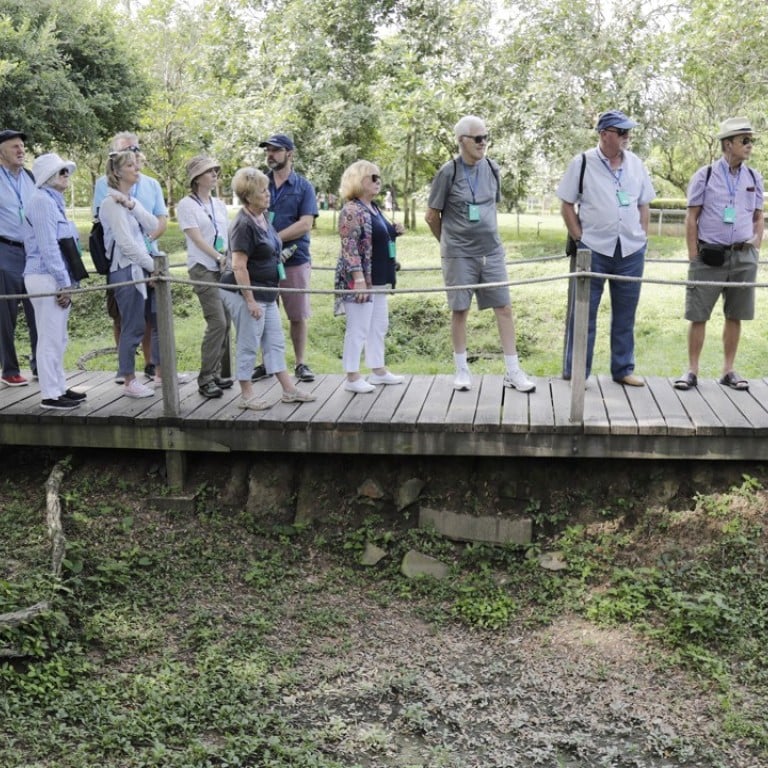
Cambodia must come to terms with its dark past
- Tribunal has to continue providing answers about the Khmer Rouge genocide, and create an invaluable historic record that will teach about mistakes and promote rights
The atrocities committed by Cambodia’s Khmer Rouge regime between 1975 and 1979 were so far-reaching that justice for the victims and their families can only ever be symbolic. At least 1.7 million people perished from execution, torture, forced labour and starvation, but constraints as a result of lapsed time, the difficulty in amassing evidence and politics mean that only a small number of perpetrators will ever face judges. Life sentences recently handed down by a tribunal to the most senior surviving leaders, Nuon Chea and Khieu Samphan, for genocide, crimes against humanity and war crimes, brought to three the number now convicted. Whatever the limitations, though, there is still a need to move forward with pending cases so that the face of responsibility can be broadened and every effort made to answer questions still haunting the nation.
Nuon Chea, 92, and Khieu Samphan, 87, were already serving life sentences for previous cases. The only other former official convicted is Kiang Guek Eav, known as Duch, who was jailed for 30 years for being in charge of an interrogation centre where an estimated 14,000 people were killed. Two officials died while awaiting trial and others, including leader Pol Pot, escaped facing justice. Cases are pending against several more for war crimes, genocide and other crimes against humanity.
But there is pressure for the process to end. The convictions took nine years and cost more than US$300 million, with the United Nations-supervised tribunal of Cambodian and international judges having shortcomings. The biggest is that many government officials, including Prime Minister Hun Sen, are former members of the Khmer Rouge. Hun Sen opposes the tribunal, frequently warning that it risks plunging the country into civil war.
Most of Cambodia’s 16 million people were born after the genocide. But survivors and the families of victims still want to know why the Khmer Rouge committed such atrocities. The tribunal is helping provide answers through bringing justice, creating an invaluable historic record that will teach about mistakes and promoting rights. The more Cambodia can come to terms with its past, the more it will be at ease with itself.

